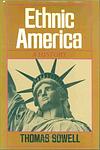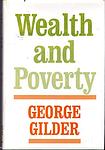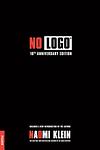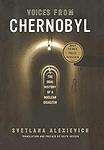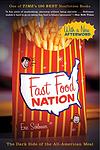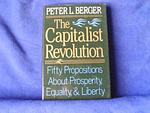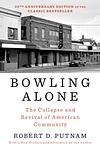The Greatest "Political, Nonfiction" Books Since 1980
Click to learn how this list is calculated.
This list represents a comprehensive and trusted collection of the greatest books. Developed through a specialized algorithm, it brings together 300 'best of' book lists to form a definitive guide to the world's most acclaimed books. For those interested in how these books are chosen, additional details can be found on the rankings page.
Genres
The "Political" category of books encompasses works that explore the theory, practice, and history of government and politics. These books may cover topics such as political ideologies, political systems, political institutions, political movements, and political leaders. They may also examine the relationship between politics and other areas of society, such as economics, culture, and international relations. Political books can be both informative and thought-provoking, offering readers insights into the complexities of the political world and the challenges of governing in a democratic society.
Countries
Date Range
Reading Statistics
Click the button below to see how many of these books you've read!
Download
If you're interested in downloading this list as a CSV file for use in a spreadsheet application, you can easily do so by clicking the button below. Please note that to ensure a manageable file size and faster download, the CSV will include details for only the first 500 books.
Download-
26. The End of History and the Last Man by Francis Fukuyama
This book presents a provocative exploration of the evolution of political systems and the role of liberal democracy in the global landscape. The author argues that the progression of history, as defined by the development of political and economic systems, has culminated in liberal democracy and free-market capitalism. This, he suggests, may represent the endpoint of mankind's ideological evolution and the 'end of history'. The book also discusses the concept of 'the last man' as a potential consequence of this endpoint, exploring the existential threat of a society of 'last men' devoid of ideological struggle and dominated by materialistic gratification.
-
27. Ethnic America by Thomas Sowell
"Ethnic America" is a comprehensive study of nine ethnic groups in America, including Irish, Jewish, Italian, Chinese, Japanese, and African Americans. The book provides a detailed historical analysis of each group's immigration, struggles, successes, and influence on American culture and society. By examining the economic, social, and cultural patterns of these groups, the book challenges conventional views about race and ethnicity, and explores the complex factors that contribute to the unique experiences of each group in America.
-
28. Wealth and Poverty by George Gilder
"Wealth and Poverty" is an influential exploration of the economic and social theories that drive the wealth distribution in the United States. The book argues that supply-side economics and capitalism are the most effective systems for creating wealth and reducing poverty. It criticizes welfare programs and other forms of government intervention, asserting that they discourage individual initiative and are counterproductive in the long run. The book also discusses the moral and religious implications of wealth and poverty, emphasizing the importance of values such as discipline and the work ethic.
-
29. Ain't I A Woman?: Black Women And Feminism by bell hooks
This seminal work in feminist theory examines the impact of sexism and racism on Black women throughout American history. It challenges the marginalization of Black women within both the feminist movement and civil rights discourse, arguing that the intersection of their racial and gender identities creates unique forms of oppression. The book critiques the mainstream feminist movement for its focus on white women's experiences and calls for a more inclusive approach that addresses the diverse and complex realities of Black women's lives. Through historical analysis and cultural critique, it advocates for a feminism that is truly universal and attentive to the ways in which race, class, and gender intersect.
-
30. No Logo by Naomi Klein
This book explores the negative effects of corporate branding and globalization. It critiques the marketing strategies of large corporations, arguing that they exploit workers and manipulate consumers. The author also discusses how these corporations have a significant influence on culture and public space. The book suggests that consumer activism and grassroots movements can serve as effective counter-forces to corporate power.
-
31. Pornography by Andrea Dworkin
The book is a radical feminist examination of the pornography industry and its effects on society. The author argues that pornography dehumanizes women by objectifying them and glorifying male dominance and violence. She delves into the ways in which porn perpetuates misogyny and contributes to the widespread culture of sexual violence against women. The work is a provocative critique that challenges the notion of pornography as a benign form of adult entertainment, instead positioning it as a fundamental issue of women's rights and social justice.
-
32. The Closing of the American Mind by Allan Bloom
The book is a critique of the contemporary American educational system, particularly in universities. The author argues that the rise of relativism and the decline of the humanities have led to a crisis in American education, with students becoming less able to think critically and more prone to moral and intellectual confusion. The book also discusses the impact of popular culture and political movements on education, and argues for a return to a more traditional, classical education.
-
33. Common Ground by J. Anthony Lukas
"Common Ground" is a non-fiction book that provides an in-depth examination of racial tensions in Boston, Massachusetts during the 1960s and 1970s, primarily focusing on the controversial issue of court-ordered busing to integrate public schools. The narrative follows three families - one African-American, one Irish-American, and one Yankee - to depict the effects of these tensions on the city's different communities. The book also explores the historical, political, and social context of these events, offering a comprehensive analysis of a critical period in American history.
-
34. Personal History by Katharine Graham
"Personal History" is an autobiography of a woman who inherited a media empire, The Washington Post, following her husband's suicide. The book explores her journey from a privileged yet sheltered upbringing to leading one of the most influential newspapers in the United States. It provides an intimate look into her personal life, including her struggles with self-confidence and her role in the coverage of significant historical events such as the Pentagon Papers and the Watergate scandal.
-
35. Centesimus Annus by Pope John Paul II
"Centesimus Annus" is a papal encyclical where the Pope explores and reaffirms the Catholic Church's teachings on social and economic issues. It was written on the hundredth anniversary of "Rerum Novarum," an earlier encyclical addressing issues of labor and the economy. The document discusses the dangers of both socialism and capitalism, and emphasizes the importance of a moral and ethical approach to economics, one that respects human dignity and prioritizes the common good above personal gain.
-
36. Voices from Chernobyl by Svetlana Alexievich
This book is a haunting collection of personal accounts about the nuclear disaster at Chernobyl in 1986. The author has meticulously gathered and woven together interviews from survivors, including former workers of the plant, residents, and soldiers. Each narrative reveals the physical and psychological impact of the disaster on individual lives, creating a deeply moving oral history of an event that has had profound consequences on the people of Belarus and Ukraine.
-
37. Out Of The Fire by Ales Adamovich, Yanka Bryl, Vladimir Kolesnik
"Out Of The Fire" is a powerful collection of stories that vividly depict the horrors and resilience of the human spirit during World War II. Through the eyes of various characters, the book explores the devastating impact of war on individuals and communities, capturing their struggles, sacrifices, and moments of hope amidst the chaos. With hauntingly beautiful prose, the authors bring to life the unimaginable atrocities of the war, reminding us of the importance of remembrance and the enduring strength of the human soul.
-
38. Praying for Sheetrock by Melissa Fay Greene
"Praying for Sheetrock" is a non-fiction narrative that tells the story of racial tension and civil rights struggles in a small coastal town in Georgia during the 1970s. It focuses on the experiences of the African American community who, led by a charismatic shrimp boat worker, stand up against the corruption and racial discrimination perpetrated by the town's white sheriff and his deputies. The book provides an intimate portrayal of the town's residents, their hardships, and their fight for justice and equality.
-
39. Spheres Of Justice by Michael Walzer
"Spheres of Justice" presents a theory of justice based on the concept of complex equality, arguing against a single, overarching principle for justice across all societal domains. Instead, it posits that different spheres of society—such as the market, politics, education, and family—each have their own distinct forms of social goods and require separate sets of distributive principles. The book challenges the idea of a dominant currency, like money or power, being allowed to dictate outcomes across different spheres, advocating for a pluralistic approach that respects the unique distributive patterns and criteria of justice within each sphere, thereby preventing the dominance of any one sphere over the others and ensuring a more equitable society.
-
40. Nations And Nationalism by Ernest Gellner
This book presents a theoretical exploration of the concept of nationalism, the social conditions fostering it, and its role in the modern world. The author argues that nationalism is a product of industrial society, which necessitates a homogenous culture for communication and a centralized education system to sustain the industrial and economic structure. The work critically examines the origins and implications of nationalism, suggesting that it is not an ancient phenomenon but rather a relatively recent one that arises when a society transitions from agrarian to industrial. The author contends that nationalism serves to align the political and national unit, without necessarily corresponding to pre-existing ethnic or cultural identities, and is a political principle that holds that the political and the national unit should be congruent.
-
41. The Beauty Myth by Naomi Wolf
The book is a groundbreaking work that explores how images of beauty are used against women, impacting them psychologically and socially. It critically examines the beauty industry and the societal pressures on women to conform to certain standards of appearance. The author argues that the obsession with physical perfection traps the modern woman in an endless cycle of hope, self-consciousness, and self-hatred as she tries to fulfill society's impossible definition of the flawless beauty.
-
42. Resources, Values And Development by Amartya Sen
"Resources, Values, and Development" is a comprehensive examination of the interplay between the availability of resources, the values that guide their use, and the resulting impact on development. The book challenges traditional economic measures of development, such as GDP, and argues for a broader understanding that incorporates human welfare and freedom. It delves into the role of ethics in economics, the importance of individual capabilities, and the need for equity in the distribution of resources. The author's influential ideas on development economics and social choice theory are presented, advocating for a more humane and inclusive approach to economic development that prioritizes the enhancement of human lives over mere economic growth.
-
43. The Future Of Democracy by Norberto Bobbio
In "The Future of Democracy," the author provides a critical examination of the concept and practice of democracy, exploring its historical evolution, inherent challenges, and potential future. The work delves into the tension between the ideals of democracy and the practical realities of governing, addressing issues such as the role of political parties, the influence of public opinion, and the impact of economic inequalities. The author argues for the necessity of continuous democratic reform and the importance of safeguarding democratic principles in the face of changing social and political landscapes, ultimately presenting a thoughtful reflection on the prospects and resilience of democratic systems in the modern world.
-
44. Fast Food Nation by Eric Schlosser
This book is an in-depth exploration of the fast food industry in America, examining its history, business practices, and impact on society. The author investigates the industry's influence on America's economy, health, and culture, revealing disturbing facts about the production process, the exploitation of workers, and the health risks associated with fast food consumption. The book serves as a critique of the fast food industry and its detrimental effects on American society.
-
45. We Tell Ourselves Stories in Order to Live: Collected Nonfiction by Joan Didion
This book is a compilation of seven works of nonfiction that explore the themes of American culture, politics, and landscape. The author's sharp observational skills and distinctive narrative voice provide insightful commentary on a range of topics, from the counterculture of the 1960s to the breakdown of the nuclear family. Her essays are deeply personal, often reflecting on her own experiences and emotions, while also offering a broader critique of society. The collection is a testament to the power of storytelling, both in shaping our understanding of the world and in helping us navigate through life.
-
46. Living In Truth by Vaclav Havel
"Living in Truth" is a collection of essays and speeches that delve into the moral and existential struggles of living under an oppressive regime. The work explores the nature of power, truth, and individual responsibility in a society where the official narrative often contradicts reality. The author, a dissident playwright turned political leader, argues for the importance of living with integrity and maintaining a commitment to truth as acts of resistance. Through personal anecdotes and philosophical reflections, the text serves as both a critique of totalitarianism and a guide for maintaining one's humanity in the face of systemic deception and coercion.
-
47. The Capitalist Revolution by Peter Berger
The book provides a comprehensive analysis of the capitalist system, exploring its historical development, cultural implications, and the ideological debates surrounding it. The author delves into the transformative power of capitalism, arguing that it has reshaped societies by fostering economic growth, increasing individual freedoms, and altering social structures. He addresses the criticisms of capitalism, including issues of inequality and moral concerns, while also examining the alternatives and their shortcomings. The work ultimately defends capitalism as the most effective economic system for promoting human welfare, but acknowledges the need for ethical considerations and social safety nets to mitigate its excesses.
-
48. Say Nothing by Patrick Radden Keefe
This book is a gripping exploration of the Troubles in Northern Ireland, focusing on the disappearance of Jean McConville, a mother of ten who was abducted by the Irish Republican Army (IRA) in 1972. The narrative weaves together the stories of several key figures in the IRA, including Dolours Price, an IRA member who became disillusioned with the organization, and Brendan Hughes, a former IRA commander. The book delves deep into the political and personal complexities of the conflict, revealing the long-lasting trauma and moral ambiguities that continue to haunt those involved.
-
49. Bowling Alone by Robert D. Putnam
This book delves into the decline of social capital in the United States over the latter half of the 20th century, illustrating how Americans have become increasingly disconnected from their families, friends, neighbors, and democratic structures. It explores the consequences of this disengagement, arguing that the fabric of American social life has frayed significantly, with civic, social, and political participation diminishing. Through a comprehensive analysis of societal trends, the author demonstrates how this shift away from communal activities towards individual pursuits has profound implications for the health, happiness, and stability of society.
-
50. Staying Power: The History of Black People in Britain by Peter Fryer
"Staying Power: The History of Black People in Britain" is a comprehensive account of the African diaspora in Britain from Roman times to the present day. The book explores the various contributions of Black people to the British society, culture, and economy, challenging the traditional narrative that Black presence in Britain began with the Windrush generation. The author delves into the struggles, achievements, and resilience of Black people in Britain, offering a nuanced and detailed historical perspective.
Reading Statistics
Click the button below to see how many of these books you've read!
Download
If you're interested in downloading this list as a CSV file for use in a spreadsheet application, you can easily do so by clicking the button below. Please note that to ensure a manageable file size and faster download, the CSV will include details for only the first 500 books.
Download
